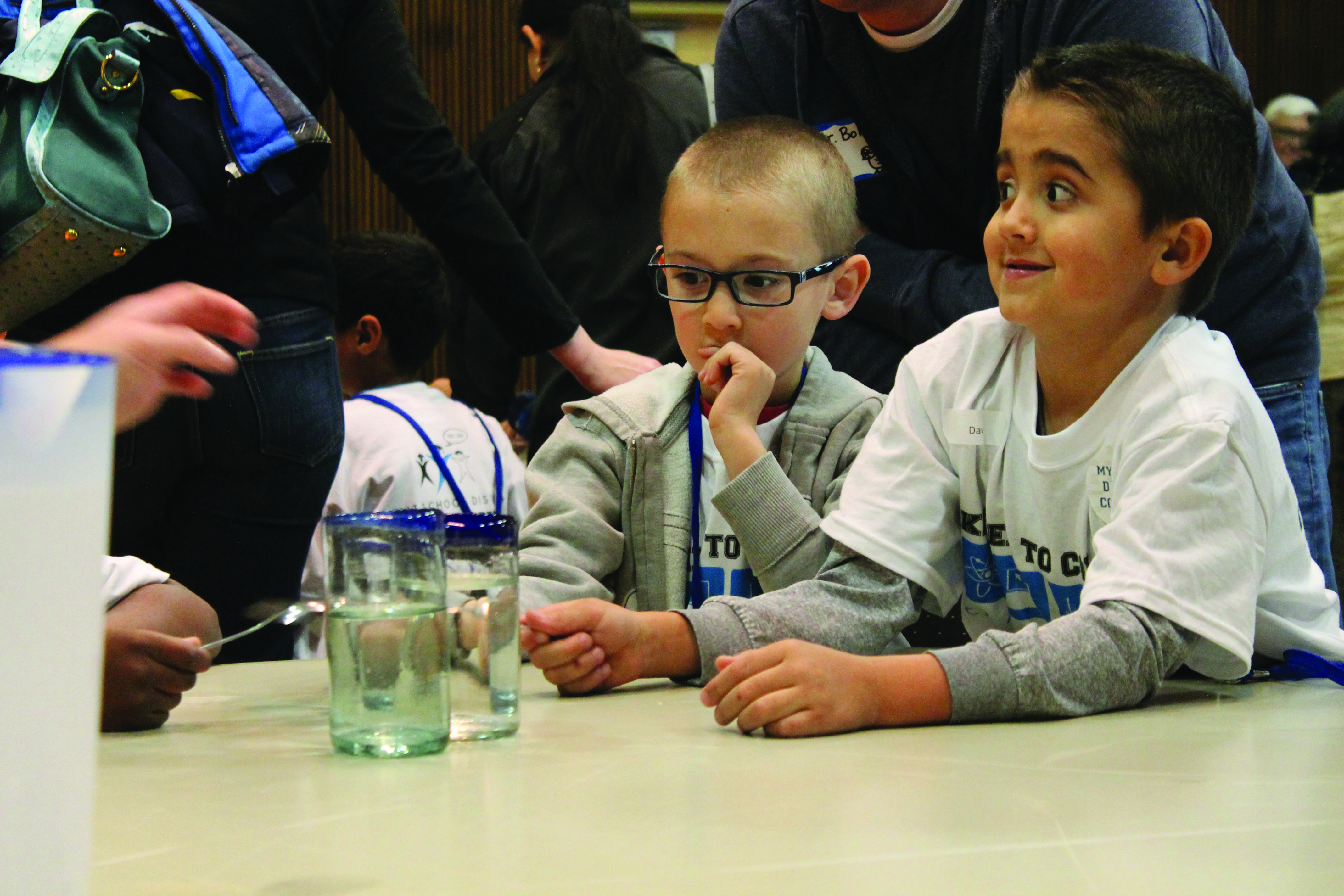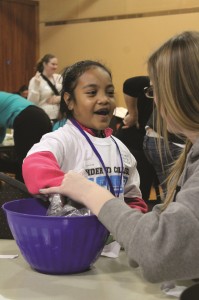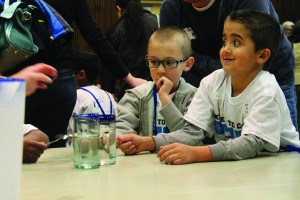
By Caitlin Beesley and Dania Tolentino, Guest Writers
Chris Knutzen Hall rang with shouts of “don’t touch anything yet!” as an army of kindergarteners from Martin Sortun Elementary School invaded the Pacific Lutheran University campus.
Sheets of paper crumpled and crayons dropped to the tabletops as the youngsters relinquished their holds on items available at the tables.

More than 100 kindergarteners and almost 40 parents and staff visited PLU as part of the Kinder to College program, formed specifically for the Kent School District, on Tuesday.
Ever since superintendent of public schools Edward Lee Vargas was hired in 2009, promoting college for elementary students has become an integral part of the Kent School District. For four years, kindergarteners from Kent public schools have been visiting colleges and universities in the greater Seattle area, all with the expectation that someday they will go to college.
The program was designed to get children excited about continuing their education, Randy Nunez, college and career liaison for the Kent School District, said.
This is the second year PLU has hosted kindergarteners from schools in the Kent District, but only the first that the School of Education has been involved. The previous year, the visit was coordinated by the Admissions Office.
However, there were problems with last year, admissions counselor Brandon Bruan said. The Office of Admissions couldn’t handle 200 kids with only 10 staff members and no student volunteers, so this year the School of Education stepped in to help.
The kindergarteners were excited, to say the least.
Dean of the School of Education and Movement Studies Frank Kline kicked off the day enthusiastically after everyone was inside the CK Hall.
“We can probably get five students per table,” Kline called from the podium as squabbles broke out over seating.
Some PLU students attempted to distract from the tempting crayons and paper on the tables by asking how the hour-long bus ride from Kent was.
“Super long!”
“I was hot!”
“I wanted to throw up!”
Kline’s welcome was brief due to the buses arriving late. Following was a formal welcome to the Spanish-speakers in the audience.

The kindergarteners, made up of four different classes, were split up after that. Half took tours of the campus and the others remained to take part in science experiments put on by PLU’s education majors.
Upon hearing that her class was to remain indoors to do experiments, one kindergartener punched the air, shouting, “yes!” eliciting some laughter from onlooking parents.
A mad scramble ensued after the classes separated, with kindergarteners leaving in twos, threes or herds, and parents and chaperones following close behind.
“Are you guys excited?” was a typical question as five or six students latched onto PLU volunteers from the School of Education and exited the Anderson University Center (AUC). Guides introduced themselves only to have the kindergarteners promptly forget their names as they walked out onto upper campus.
“Did we lose a kid already?” one parent asked, looking around as they left the AUC.
“You guys came on a really beautiful day,” said one of the guides, a sentiment echoed by the parents.
Five minutes into the tour, one kindergartener declared she would come to school at PLU. “But if you don’t let me, I’ll go to a different one,” she amended after her father expressed skepticism.
Back at the AUC, the remaining kindergarteners gathered around tables to participate in science experiments. These included observations in color, the magic behind air pressure, bouncing bubbles and musical water cups. Rotations occurred every eight minutes.
When all 100 kids had taken tours and helped out with science experiments, Scott Meyer, Martin Sortun’s education assistant, took the podium.
“How many of you liked going to college today?” he asked. Hands shot up.
Before heading off to lunch, the kindergarteners recited a pledge, promising to do well in school, listen to their teachers, help their parents, graduate from high school and go on to college. Their white T-shirts, describing them as college bound and graduates of 2025, were clear enough.

















